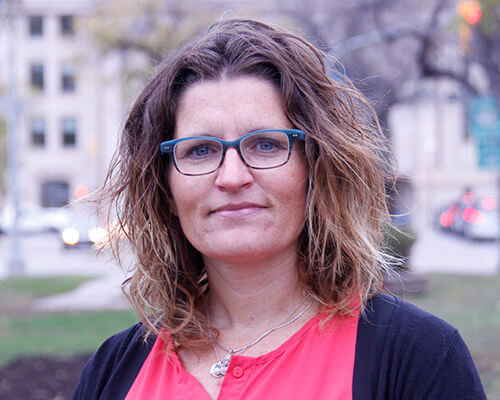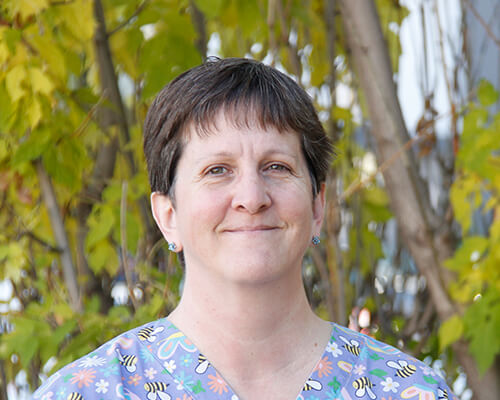Kerri
My dad, Terry Law, was diagnosed with early onset Alzheimer’s disease two years ago at age 63. He lives in a care home, and my two sisters and I go as much as we can to visit him. Even though he doesn’t know our names anymore, he’s still our dad.
We remember Dad as a fun guy. He always joked around and he loved dancing. And he was proud of us girls! He’d drop everything and come to help us change a tire, even in his business suit. So when he started to show early signs of Alzheimer’s, we all went into denial. We couldn’t believe he didn’t know how to follow directions or make a list in Excel.
One day he couldn’t remember how to play chess with my six-year-old daughter. That’s when I knew something was really wrong, and I didn’t know what to do.
Mom had been trying to deal with everything on her own, but the day came when we realized she couldn’t cope anymore. She had been looking after all the daily care, like brushing his teeth and getting him into the shower. Dad would get up in the middle of the night many times, and Mom wasn’t getting enough sleep.
It was devastating. I felt like I was losing who my dad is and who he was. We all felt that way.
We managed to get Dad into a respite centre so Mom could take a break, and then shortly afterwards, a permanent placement in his care home became available. He has lived there since last January. He knows we are familiar and he’s happy to see us, but it is sad for us.
Pieces of Dad are still there, like his laugh. He as a genuine laugh – a true, true laugh. He makes a joke every once in a while. We are losing who he was, but we won’t stop visiting him. He needs us now.
Dad was always there for my mom, my two sisters and me. Now, we are there for him.

HERE ARE MY TIPS TO HELP YOU UNDERSTAND:
- If you see signs, even subtle ones, don’t try to hide it – go and talk to someone. A counsellor at the Alzheimer Society got us to address the elephant in the room, and that helped us to start talking.
- Even if your family member doesn’t seem to know you, they probably know you are familiar. Dad has introduced me as his wife, so he knows I’m family.
- Let the little things go. It doesn’t matter if it takes 10 minutes longer for him to put on his shoes.
- Try to see the silver lining. For us, Dad’s illness brought my family together and made us closer than we’d ever been before.
- When people find out you have a family member with dementia, they may come to you for help if they are worried about someone in their family. That’s a positive thing – you can help them!
-
More Stories
-

Gary
2018
Manitoba
-

Laurie
2018
Manitoba
-

Nancy
2020
Manitoba
-

Tannis
2018
Manitoba

Comments
We may use your information in order to track your relationship with us and our site(s). We do NOT share your information with third parties.